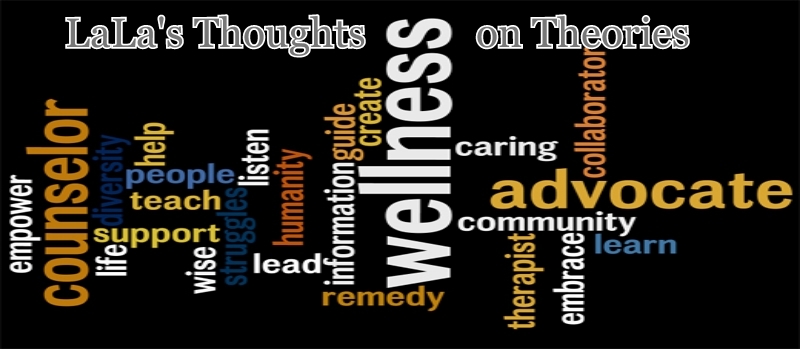Founder
Person-centered therapy philosphy:
Positive view of people; we have an inclination toward becoming fully functioning. In the context of the therapeutic relationship, the client experiences feelings that were previously denied to awareness. The client moves toward increased awareness, spontaneity, ,trust in self, and inner-directedness. (Gerald Corey)
This video was pretty interesting. It really gives a good overview of this theory.
The main key concept of Person-centered therapy is human nature.
The goal for the therapist is to provide a comfortable, non-judgmental environment where the therapist is genuine and has empathy for the clients feeling and thoughts. So that the client feels comfortable in working on self-actualization. The attitude and being of the therapist is where they can facilitate change in the client, more than their knowledge, theories, or techniques.
Self-actualization is when a person wants to become everything they can potentially be realistically.
Where you might see Person-centered Therapy
- Group Therapy
- Therapist facilitates the group but allows the members to share and give each other feedback.
- They feel that they are not alone and that others have experienced what they have
- Expressive Arts Therapy
- Natalie Rogers (Carl Roger's daughter) believed that you could grow and heal through various non-verbal activities.
- The clients are allowed to look and search themselves through paint, sculpture, drama, ect.
- Emotion Focused Therapy
- uses Person-centered therapy and some Gestalt therapy techniques (Which I will be blogging about next week by the way)
- It believed that if we change our emotions then we can change our behavior
There are no techiniques that can be in stone for Person-centered therapy. The therapist practicing this is not giving advice or direction. They simply are helping a client guide their way through some sort of diemma, crisis, anxiety they are feeling. It is extremely important and vital to this theory that the relationship between the client and therapist is authentic. The therapist must care and be empathetic. Its is helpful for them to use active listening.







